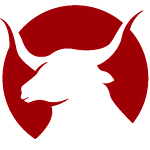Thank you for your patience as I take time with the new baby. It has been pretty great barely working (professionally) for the last six weeks. I have half-written a briefing that I keep thinking I will finish and send, but it continues not to happen. I have not decided when I will really ramp back up. In the meantime, here is another Marketing BS interview. This one is pretty unique. Stuart was CMO of the largest law firm in Canada without ever being a lawyer (and is now the CEO of a newer firm). Part one, like always, is about his career. Next week I will drop Part 2 which explores the mechanics of how he thinks about marketing a law firm (with all sorts of learnings for service businesses). Enjoy.
The Transcript:
Edward: This is Marketing BS. My guest today is Stuart Wood, CEO of Caravel Law. It's a leading law firm based in Toronto, Canada. Today we're going to cover Stuart's path becoming a CMO and now CEO of a law firm, but not actually a lawyer himself. He was at Loblaws, McKinsey, Torys, Exact Media, and more. In the next episode, we'll dig deeper into what it means to run marketing for a law firm. But today, I want to focus on Stuart.
Stuart in 2005, you were an engagement manager at McKinsey. It's not uncommon for people to leave McKinsey when they're engagement managers, but it is fairly unusual to leave and become a CMO immediately. It's also extremely unusual, I think, to leave work for a law firm. Tell me exactly how that happened.
Stuart: The main reason that it was unusual was that I joined a client that I had been serving as a consultant. I had a consultant's worst nightmare. You put forward a series of recommendations and then the client turns around and says, well, hey, why don't you come on board and do all this stuff that you said we should do? The list of recommendations that I had made was now recommendations to myself. I was in a unique situation of trying to take all the analyses that I've done and all the recommendations that I had put forward, and now put them into action.
It was a unique opportunity, a chance to implement what I had seen. I'd had a chance to work with the team for three and a bit months. I really had a good feel for the people. I really liked the environment. I really liked the leader of the firm, Les Viner. I jumped at the chance to join the management team at Torys.
Edward: You came on at that project work, the McKinsey work you were doing for them. Was it a marketing project?
Stuart: No, it was really a full strategy review for the firm. The firm had expanded into the US and had done a number of interesting things. We're five years onwards, wanted to take a look at some of the decisions they've made, whether they still made sense, whether there were execution issues that they could tighten up, that kind of thing. So I came in and led that project to make a set of recommendations overall for the firm.
Edward: Who was the individual at the firm that was your client? Who was thinking through the strategic problems that you're giving these recommendations to?
Stuart: I've worked most closely with the managing partner at the firm. But I really worked closely with the entire executive committee, which was made up at the time, I believe, of seven senior lawyers at the firm including a managing partner.
Edward: They were all lawyers. They were all practicing lawyers who were presumably trying to hit billable hours, targets, and billing clients and managing teams, and then they're doing this on the side, which is like, what is the strategy of our firm going to be?
Stuart: Yeah. The managing partner at that firm doesn't actually practice and doesn't work with clients any longer. His full time job was running the firm. But the other six members of the executive committee were active leading senior partners inside the firm who ran practice groups, had responsibility for the most important clients at the firm, that kind of thing. So they had to juggle all the strategy responsibilities and talk through all the business decisions at the same time as maintaining an active practice.
Edward: Then why bring you on as a CMO? Why not head of strategy or chief strategy officer?
Stuart: I was essentially in charge of business development, marketing, and strategy for the firm. I became a non-voting member of the executive committee. So I had an opportunity to attend all the executive committee meetings and participate in all the decision making that went on from that point forward.
Edward: Why call it marketing? The three months you spent were doing strategy work for the firm and now you come on board to implement it, but they're calling you marketing.
Stuart: I think the intention wasn't for me to do a lot of marketing work, but they had a 14-person marketing department. I was nominally replacing the person who had run the marketing department. The thought was at the time, it's a high-performing group, it won't require a lot of your time. But a lot of the stuff that you're going to do with clients and with the overall strategy we want of the firm, we want that to dovetail nicely with what the marketing department is doing.
Edward: Got it. When you were at McKinsey, were you a marketing specialist, or are you more of a strategic specialist?
Stuart: I was more on the strategy side. The first marketing job I ever had was chief marketing officer, which is an odd path for sure.
Edward: Yeah, I get that. Now you're at Torys and you're the CMO. How much time are you spending on marketing versus what you'd call strategy?
Stuart: I would say it changed. I was there for 6 ½ years. I would say the first two or three years, there was a lot of strategy work, there was a lot of organizational work, getting the office in New York and Toronto to work well together. We ultimately then went on to open an office in Calgary while I was there. They've since opened a couple more, but there were three when I left.
There was a lot of work like that that I did. But ultimately, positioning the firm in the market became a big important part of my job. How we represented the firm out into the market and a lot of the things that I think of is marketing like pricing, how we treat our alumni from the firm, and things like that. That became a bigger part of my role over time.
Edward: How did you learn those skills? Was it just learning from your direct reports, the people had been doing marketing?
Stuart: Yeah. I would say I had some learning from the team. It was a strong team, so I was able to leverage that. In particular, for things where you don't have a lot of experience naturally from just being part of companies and working your way up. There are things like running events and some of the marketing stuff. I had very good outside advisors. I had an excellent advisor who I really trusted and came to rely on heavily who was helping me with public relations and some of the other things that I didn't know very much about.
In my second week at the firm, there was a situation where the firm was in all the newspapers, and reporters were calling me, and I went out to talk to my assistant. I said, why are all these reporters calling me? She informed me that I was the chief spokesperson for the firm, which hadn't come up in the interview process.
I ended up having to deal with this situation and having never been trained on any of that stuff, just really at the start trying not to make any horrible mistakes. But pretty quickly, I realized that I needed someone to come in and give me some media training and how to be able to handle those kinds of questions without inadvertently making the problems worse for the firm.
Edward: That's crisis communications. It's not just a CMO specialty. It's a subspecialty within public relations, which was a specialty. It's right down there. You thrust into that without any background in it, it's got to be challenging.
Stuart: It was challenging for a couple of reasons. One was—this is going back a little bit but—blogs were coming out. I'd have the Wall Street Journal Law Blog calling me about this situation looking for a comment within just a couple of minutes because they're about to go live with this. It wasn't like these or newspaper articles that were going to come out the next day. These were a lot of things that were going to be going online within minutes and you have to provide a comment.
Oftentimes, with regards to a courtroom situation, I had people in the courtroom who were providing me with updates. But if I hadn't gotten an update by the time reporters were already reaching out to me, I was in a certain sense flying blind. I had two individual lawyers who were really involved in this case who were providing testimony. I felt a lot of responsibility for their situation, their individual careers, and how their reputations were going to come out of this.
Because I believed then, I believe now that they hadn't done anything wrong. But there were a lot of things that were being suggested and you want to be very careful about how you manage that because it wasn't just the firm's brand that I was trying to protect, I was also trying to protect those two individuals and make sure that the things suggested about them weren't accurate.
Edward: I want to go back a little bit on the path that you took to get there. What were you passionate about when you were 12–14 years old?
Stuart: I would say I had two passions, which were really just sports and music. I was either outside playing sports or I was inside listening to music. Those were the two things that I was really passionate about.
Edward: Where did that lead? You did a lot of music at that age. I tend to believe that the stuff you do at that age does carry through the rest of your life. Did it for you? Is music still a thing and it didn't affect your career in any way?
Stuart: It is still a thing. I still have an active band that we play in clubs around Toronto when pandemics aren't stopping us from doing so, which is a great outlet for me, and write songs and things like that. It gives a creative outlet for me for sure. I ended up going on to play sports all through university. I was the captain of my university volleyball teams. I was on the university hockey team.I played that way.
I think you'll learn a lot of skills in terms of teamwork, leadership, overcoming adversity, and things like that when you're playing sports all the way through.
Edward: Related to this, is there anything that you believe strongly that many other people don't?
Stuart: One of the things that I came away from McKinsey really thinking was that most of the time when I would go into an organization and spend time with the senior leadership, there was really not a lot of magic to it. You meet these people, they'd be smart and talented people. But a lot of the business challenges that we were working on were not enormously complex. Sometimes that outside perspective was really valuable or the ability to look at a lot of data and pull out some insights that they could action were. But actually, it was really taken by how straightforward a lot of the business challenges that we were working on were.
In particular, one of the things that really, I think, separates good consulting from bad consulting is the degree to which people are actually bringing creativity and ideas to the table. That's carried forward in my legal law firm career. I used to say to the lawyers at Torys, and I say it to my lawyers now all the time, that if you want to demonstrate thought leadership, it actually involves thinking. You have to sit down and think about it.
If all you're doing is reporting like, well, here's what the government just announced and here's what the rule is now, that's not really thought leadership, that's reporting. But if you want to actually demonstrate thought leadership, you take the time, you put some thought into it. I really enjoyed that part of my consulting career. Where I had an opportunity to take a problem and try to come up with a creative or innovative solution to it, or think about it in a way that they hadn't thought about it before, as opposed to just, well, this is a strategy study so let me get out the slides to have the pillars in it because that's what we do on strategy studies kind of thing. I think that's one of the things that I've tried to bring to the rest of my career following consulting.
Edward: What did you do when you graduated college? What were you thinking at the time? Where did you go?
Stuart: I'd had two plays that I wrote in university that got put on, one by the Halifax Theatre Explosion Festival or whatever. I had the opportunity to sit in the audience and listen to actors on stage saying my lines and reciting the rants, speeches, or whatever I had told my jokes. I just found that intoxicating. I really loved it.
When I graduated from university, I wanted to be a reporter or a writer of some kind. I did think about going to journalism school. I actually went through the steps of applying to journalism school but ended up concluding that actually creative writing, screenplays, a novel, or something like that were more what I was interested in doing. That's what I thought I was going to do after I graduated from university.
Edward: Did you say thought? So you did not go that path. What happened?
Stuart: I did one of those traditional post-university backpacking trips across Europe visiting a lot of countries and journaling through a lot of that. Doing a lot of writing while I did that and then I came back and determined that I really wanted to focus on this. So I ended up actually moving to Hawaii, really just as a place that I thought would be a lovely place to spend some time where I wouldn't know anybody and I could really focus on writing and just see if I had things to say and things that I wanted to express.
The interesting part was that you're right, I did finish a few things. I was pretty critical of my own writing, I would say. I wasn't really sure that I had the right career path for myself and ended up after about a year coming back and then starting to get a job.
Edward: You chose Hawaii. Do you think you would have had more success if you'd gone to a colder or more miserable place?
Stuart: Maybe. Actually, I found the environment pretty inspiring. I took up running and eventually became a scuba diver. I lived with three guys who were all surfers. There was a certain uniqueness to the place, which I think also was helpful to the effort.
Edward: So then you came back to Canada and you started working in the supply chain. Is that right?
Stuart: Yeah.
Edward: How did that carry through to the rest of your career? What did you learn there that was valuable?
Stuart: I think supply chain logistics was a great foundation because it's all about problem-solving and it's all about problem solving under difficult circumstances or constrained resources. I would be faced with challenges like, this truck is hitting 8 hours north with 21 pallets of groceries and 1 pallet of meat was left behind. Now, what are you going to do because you can't have the grocery stores that are six or eight hours north of the city not have meat to sell?
You can't just put that one pallet on a truck and ship it up there because the economics don't make sense. You got to get creative and figure out how you're going to solve that problem.
I did some really interesting projects there. We opened up a new distribution center for slow-moving goods. I got to design those systems for Loblaws across the province of Ontario, which was great. I eventually got to lead a three-shift operation for Loblaws where I had 230 people who I was responsible for. I had to learn how to communicate with people on other shifts that I wouldn't actually see and have a chance to speak with directly before they started their work that day.
There were a lot of things that I learned from that experience, which I think have helped me throughout my career for sure.
Edward: What was the biggest failure point in your career? Where did things not go as expected?
Stuart: Definitely after I left Torys, things didn't go as expected. I would say there were two things. One was I was really disappointed after I left Torys to then start to look at what my career choices were at that point and to learn how little that law firm marketing experience was valued outside of the law firm world. I really thought that Torys was the best law firm marketing job in the city of Toronto. I wasn't looking to do that again after I left.
After 6 ½ years, I really felt like the partners had heard everything I had to say. They would know what I was going to recommend to them with regards to a client before I even opened my mouth. I really felt like the impact I was having was a lot less after six years. It's the right time to leave, but going on to do something afterward, there was really a sense of, it's not the kind of marketing experience that you're looking for.
You're senior enough that you can't go into the junior marketing roles that maybe would give you the chance to get the experience to move into the senior marketing roles in a consumer goods company, for example. You can't go into those roles, but also, you haven't done all the jobs coming up that would prepare you to be the head of a marketing team that's much larger than when I was managing at Torys.
That part, I came to view as, I didn't necessarily make the best choices as to what to do with my career next. I ended up going out and starting my own company, which was a learning experience, but it didn't go well. There were a lot of things that I, in retrospect, could see that I did wrong that I could redo. It was really when I got into the chief operating officer roles that I moved into next that my career went in the right direction again.
Edward: Is there any learning from that? Is it like, hey, you learned that, maybe you can pass it on to somebody else? But going forward in your career, is there anything to take away from that like, hey, don't get yourself trapped in a situation like that again?
Stuart: I'd be curious to see what happens next. I may have done the exact same thing to me now being someone who's not a lawyer but is the CEO of a law firm. The firm has done very well. I think Caravel Law has been very successful in my three-plus years as CEO. However, I'm not sure what opportunities there will be for me after this.
If there's a next act, what that would be is a little bit unclear. I guess maybe I haven't learned that lesson as well as I should have. But for sure, I think, to make those choices intentionally, and I'm thinking about it more than I did the first go-around.
Edward: What are your productivity tricks? What do you do to be productive that most people don't do?
Stuart: One of the things that I think was particularly helpful early on in my career—when I had things happening on another shift that I wouldn't actually be there and see—is I don't try to overly control what my team is doing. I'm fortunate at Caravel. We have a great team. I have people that work with me that I really trust and rely on. But I'm not scared of mistakes, something getting out that doesn't go particularly well, or an ad that maybe comes out and some of the lawyers are not big fans of.
These are all things that you learn not to stress too much about and taking the time to try to get complete control over those sorts of items so that no mistakes happen, nothing gets out that shouldn't have, that the team is perfectly managed at all times. I think one of the keys is to trust. I trust my team. If they make a mistake, we work through it, we come out the other side of it, and everything's going to be fine.
Edward: Stuart, this has been great. We're going to pick this up in part two when we dive into some of the work you did in the law firms.
Stuart: That sounds great.








Share this post